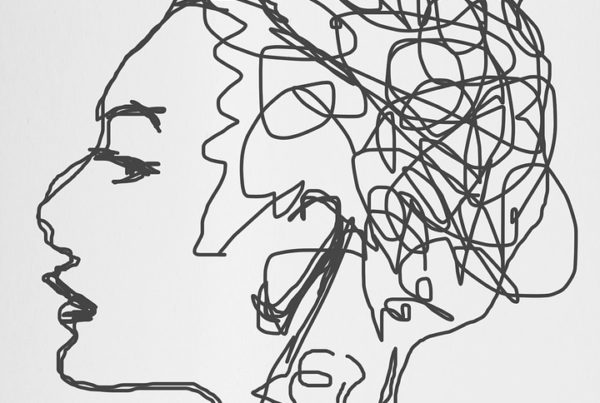

Although humankind has a long history of dealing with epidemics, the Covid-19 pandemic has many novel features. Much of that has to do with the increase in the amount of information available to people across the globe. A poor peasant with a cell phone has quicker and better access to information in 2020 than, say, the U.S. president would have had in 1990.
As a result, it is the first time in history that people can monitor the progression of the pandemic worldwide in real-time. This has positive and negative consequences. A positive consequence is that the internet has led to a shared information base for people around the world; for much of the year, everyone was staring at the same epidemiological curves. Also, the accessibility of individual citizens’ and doctors’ personal stories underscored many similarities, despite geographic and cultural differences; the doctors scrambling to help people in Wuhan, Bergamo, and New York were eerily similar. Finally, it’s the first time in my life that the world faces one common enemy at all, even if it’s just a microbe. I think that all these things have made the planet even smaller than it had already become.
Interestingly, however, while the world has been contracting radically over the past year, it has also grown more polarized. In itself, conflict is a normal feature of a pandemic – the middle ages already saw uprisings over governments’ handling of the bubonic plague that bear a strong resemblance to current revolts, and during the 1918-1920 Spanish Flu pandemic the U.S. saw the emergence of anti-mask leagues, the members of which would have felt right at home with current anti-lockdown protesters. However, the strength of this polarization seems stronger now than we have seen in many years, and has become intertwined with a bewildering set of issues ranging from immigration policies to taxes and from Brexit to Black Pete.
The increased accessibility of information and the polarization of societies worldwide may be related. My colleague Han van der Maas recently published a model for polarization in which polarization is directly related to the amount of interaction between individuals (an interactive simulation is here). This model would seem to predict that increased connectivity of the social network will lead to the increased potential for polarization. Clearly, the information age has led to such a more connected social network, as it has placed new layers of communication over the network of physical proximity that dominated communication for centuries. If this is correct, it may well be that the current pandemic signals the start of a new turbulent era, in which conflicts will become more frequent.
Is there anything psychologists can do about this? Well, according to the same model of Van der Maas and colleagues, extreme opinions are more likely to arise within individuals as these individuals get more involved with a topic. If this is true, what we should do is try and make people less involved in issues likely to generate polarization. This is interesting because it’s the direct opposite of what governments do in their communication policies. Mark Rutte invariably starts his speeches by asserting the gravity of the pandemic. If Van der Maas is correct, the prime minister should instead seek to relativize its importance. That would definitely be a historically novel thing to do.

Although humankind has a long history of dealing with epidemics, the Covid-19 pandemic has many novel features. Much of that has to do with the increase in the amount of information available to people across the globe. A poor peasant with a cell phone has quicker and better access to information in 2020 than, say, the U.S. president would have had in 1990.
As a result, it is the first time in history that people can monitor the progression of the pandemic worldwide in real-time. This has positive and negative consequences. A positive consequence is that the internet has led to a shared information base for people around the world; for much of the year, everyone was staring at the same epidemiological curves. Also, the accessibility of individual citizens’ and doctors’ personal stories underscored many similarities, despite geographic and cultural differences; the doctors scrambling to help people in Wuhan, Bergamo, and New York were eerily similar. Finally, it’s the first time in my life that the world faces one common enemy at all, even if it’s just a microbe. I think that all these things have made the planet even smaller than it had already become.
Interestingly, however, while the world has been contracting radically over the past year, it has also grown more polarized. In itself, conflict is a normal feature of a pandemic – the middle ages already saw uprisings over governments’ handling of the bubonic plague that bear a strong resemblance to current revolts, and during the 1918-1920 Spanish Flu pandemic the U.S. saw the emergence of anti-mask leagues, the members of which would have felt right at home with current anti-lockdown protesters. However, the strength of this polarization seems stronger now than we have seen in many years, and has become intertwined with a bewildering set of issues ranging from immigration policies to taxes and from Brexit to Black Pete.
The increased accessibility of information and the polarization of societies worldwide may be related. My colleague Han van der Maas recently published a model for polarization in which polarization is directly related to the amount of interaction between individuals (an interactive simulation is here). This model would seem to predict that increased connectivity of the social network will lead to the increased potential for polarization. Clearly, the information age has led to such a more connected social network, as it has placed new layers of communication over the network of physical proximity that dominated communication for centuries. If this is correct, it may well be that the current pandemic signals the start of a new turbulent era, in which conflicts will become more frequent.
Is there anything psychologists can do about this? Well, according to the same model of Van der Maas and colleagues, extreme opinions are more likely to arise within individuals as these individuals get more involved with a topic. If this is true, what we should do is try and make people less involved in issues likely to generate polarization. This is interesting because it’s the direct opposite of what governments do in their communication policies. Mark Rutte invariably starts his speeches by asserting the gravity of the pandemic. If Van der Maas is correct, the prime minister should instead seek to relativize its importance. That would definitely be a historically novel thing to do.



